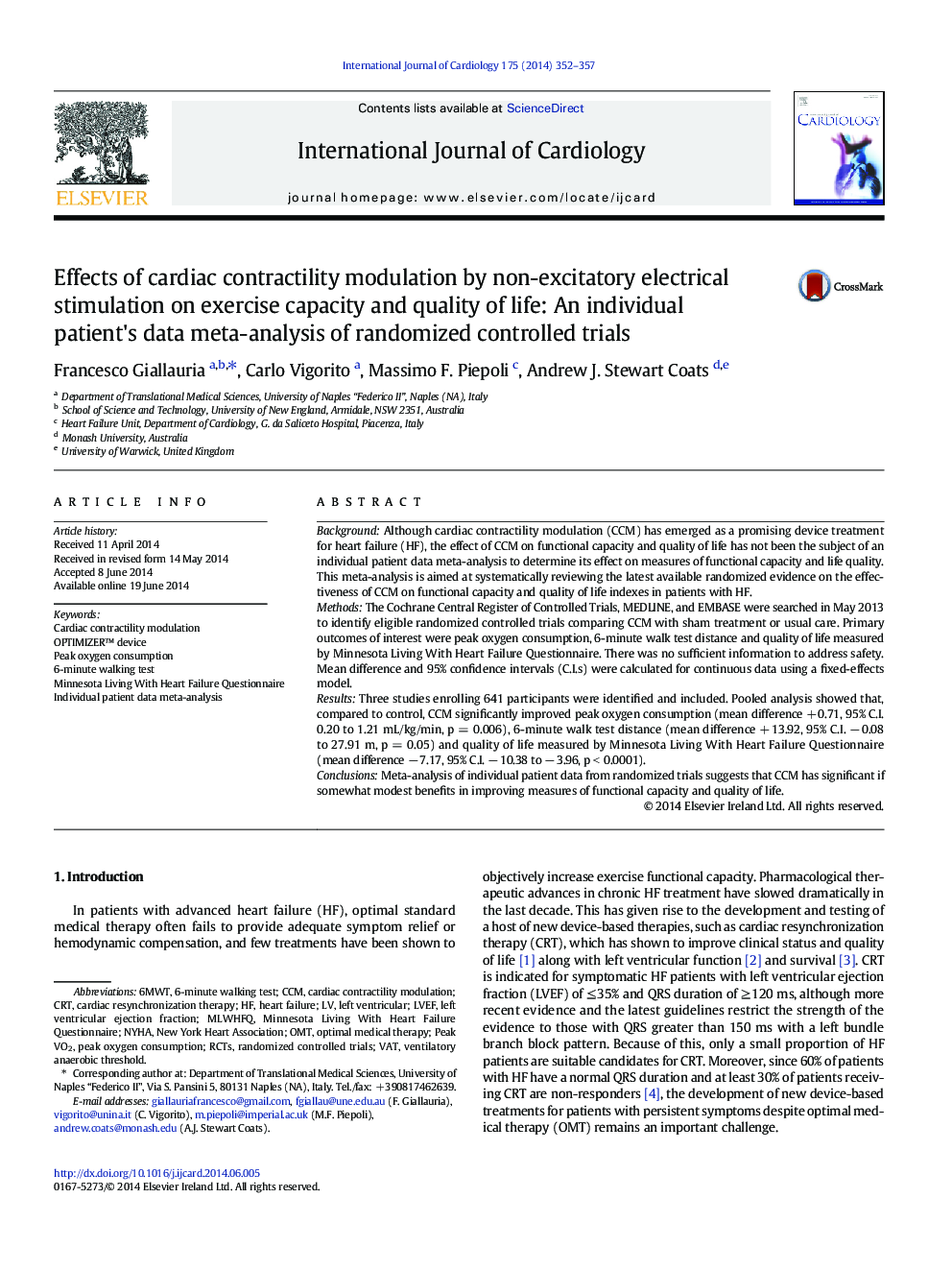| Article ID | Journal | Published Year | Pages | File Type |
|---|---|---|---|---|
| 5971161 | International Journal of Cardiology | 2014 | 6 Pages |
â¢Cardiac contractility modulation (CCM) has emerged as a promising device treatment for heart failure.â¢CCM signals are non-excitatory signals applied during the absolute refractory period enhancing the strength of left ventricular contraction.â¢This meta-analysis showed evidence on the efficacy of CCM in improving exercise functional capacity and quality of life in HF patients.
BackgroundAlthough cardiac contractility modulation (CCM) has emerged as a promising device treatment for heart failure (HF), the effect of CCM on functional capacity and quality of life has not been the subject of an individual patient data meta-analysis to determine its effect on measures of functional capacity and life quality. This meta-analysis is aimed at systematically reviewing the latest available randomized evidence on the effectiveness of CCM on functional capacity and quality of life indexes in patients with HF.MethodsThe Cochrane Central Register of Controlled Trials, MEDLINE, and EMBASE were searched in May 2013 to identify eligible randomized controlled trials comparing CCM with sham treatment or usual care. Primary outcomes of interest were peak oxygen consumption, 6-minute walk test distance and quality of life measured by Minnesota Living With Heart Failure Questionnaire. There was no sufficient information to address safety. Mean difference and 95% confidence intervals (C.I.s) were calculated for continuous data using a fixed-effects model.ResultsThree studies enrolling 641 participants were identified and included. Pooled analysis showed that, compared to control, CCM significantly improved peak oxygen consumption (mean difference + 0.71, 95% C.I. 0.20 to 1.21 mL/kg/min, p = 0.006), 6-minute walk test distance (mean difference + 13.92, 95% C.I. â 0.08 to 27.91 m, p = 0.05) and quality of life measured by Minnesota Living With Heart Failure Questionnaire (mean difference â 7.17, 95% C.I. â 10.38 to â 3.96, p < 0.0001).ConclusionsMeta-analysis of individual patient data from randomized trials suggests that CCM has significant if somewhat modest benefits in improving measures of functional capacity and quality of life.
